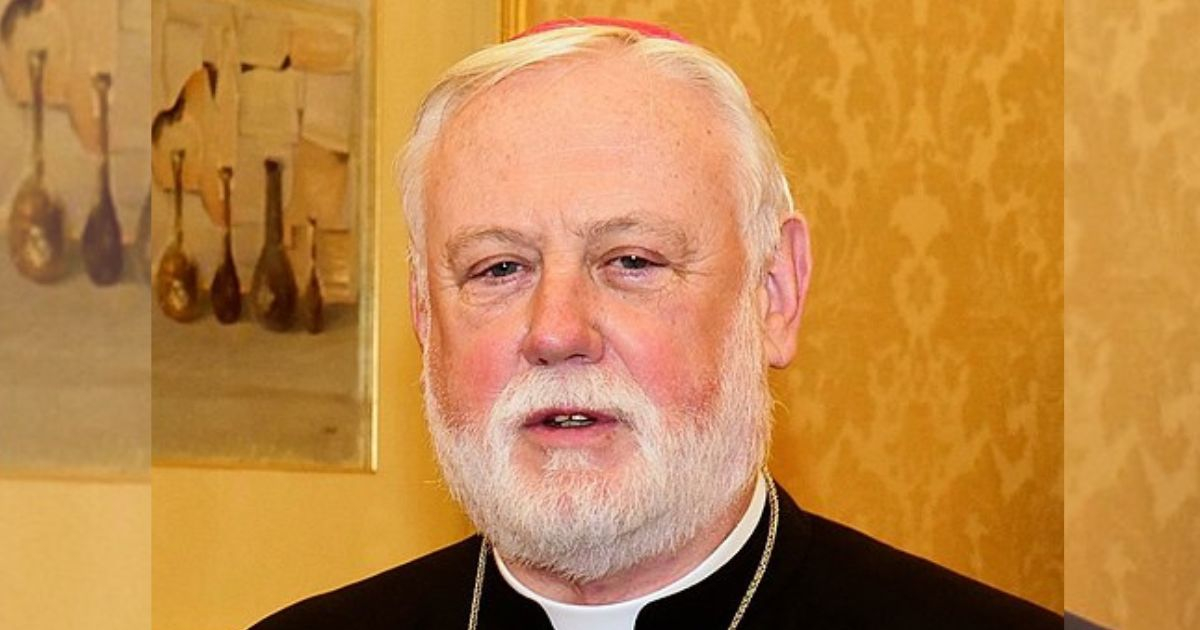The Secretary for Relations with States and International Organizations of the Holy See, Monsignor Paul Richard Gallagher, will make an official visit to Cuba starting this Tuesday and lasting until June 6th.
The presence of the high Vatican representative is part of the commemorations for the 90th anniversary of the establishment of diplomatic relations between the Cuban State and the Holy See, according to a brief statement released by the Ministry of Foreign Affairs (MINREX) on its website.
During his stay on the island, Gallagher will follow an official program that includes discussions with authorities of the Cuban regime and his participation in activities organized by the Conference of Catholic Bishops of Cuba.
Although details about the content of the discussions have not been provided, this visit comes at a particularly sensitive time for Cuban society, which is marked by a prolonged economic crisis, political repression, and an increasing migratory exodus, in which the Church has occasionally played a mediating role.
Since the beginning of his papacy, Pope Leo XIV has demonstrated a close stance toward the Cuban people, not only in symbolic terms but also personally and pastorally.
His Havana ancestry, revealed shortly after his election, established an emotional connection with Cuba that has been emphasized by both the faithful and the international press.
This connection has translated into concrete gestures that signify a significant change in the Vatican’s attitude toward the island.
In his early public appearances, León XIV has expressed a clear concern for the social and economic situation of Cubans, emphasizing his awareness of the challenges faced by the people and the need for spiritual and humanitarian support.
In one of his initial addresses, he surprised many by directly referencing the reality of those who “silently suffer under unjust structures,” a phrase interpreted as a direct message to regimes such as the Cuban one.
Additionally, the inaugural mass of his papacy became a demonstration of openness and inclusion, with explicit references to oppressed peoples and diasporas, including the Cuban one.
These statements have been well received by ecclesiastical sectors both on the island and in exile, and they reinforce the mediating role that the Church has taken on in contexts of national crisis.
Frequently Asked Questions about the Vatican Secretary’s Visit to Cuba and Bilateral Relations
The visit of the Secretary for Relations with States of the Vatican, Monsignor Paul Richard Gallagher, to Cuba takes place within the framework of the 90th anniversary of the establishment of diplomatic relations between Cuba and the Holy See. During his stay, he will participate in discussions with Cuban authorities and in activities organized by the Cuban Conference of Catholic Bishops.
The Vatican has acted as a mediator in the release of 553 prisoners in Cuba, as part of an agreement with the United States. This action is viewed as a humanitarian gesture in the context of the Ordinary Jubilee of 2025, promoted by Pope Francis. Historically, the Church has played a key role in mediating releases in Cuba.
The relations between Cuba and the Vatican are described as respectful and constructive. Over the years, the Vatican has served as a mediator in humanitarian and human rights issues. Recently, Pope Francis’s mediation was crucial for the restoration of diplomatic relations between the United States and Cuba in 2014.
The visit of Monsignor Gallagher comes at a time of economic and social crisis in Cuba, marked by political repression and migration. While the details of his discussions have not been disclosed, his presence could influence dialogue and humanitarian actions on the island, given the Vatican’s historical influence in Cuban affairs.
